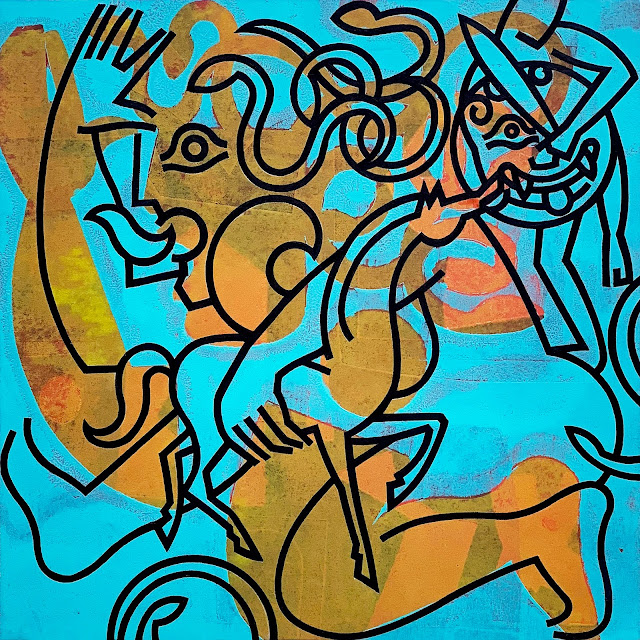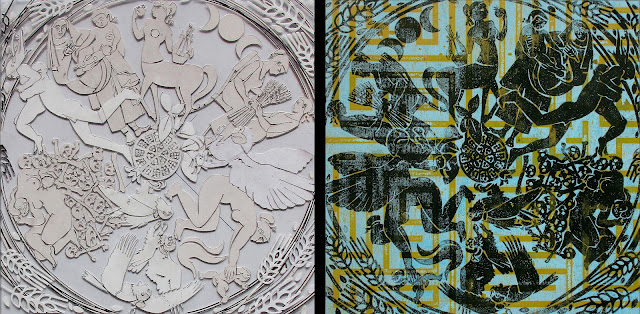Medusa

Medusa, my monotype print, will exhibit at Roby King Gallery , Bainbridge Island WA, Feb 7- March 1, 2020 in "A Trio of Print-makers" with work by Lynn Brofsky, Brian Fisher & Steve McFarlane. So delighted to be part of this talented lineup! The opening Reception is Feb 7, 6-8 pm. Check it Out! The Myths of Medusa and Perseus have been told and retold for time out of mind and the image of Medusa as Gorgon can be found in art and architecture for thousands of years. Even today she appears on the flag of Sicily and ever since Gianni Versace adopted Medusa as his logo in 1978 her iconic image has become even more pervasive.
The eighth century BC poet Hesiod, of Boeotia, composed a poem, the Theogony, about the creation of the world and the Greek gods. In it he describes the Gorgons, the mortal Medusa, whose name comes from the old verb médô that means “I rule,” and her two immortal sisters, Sthenno or “strength” and Euryale “the one that leaps or wand...




